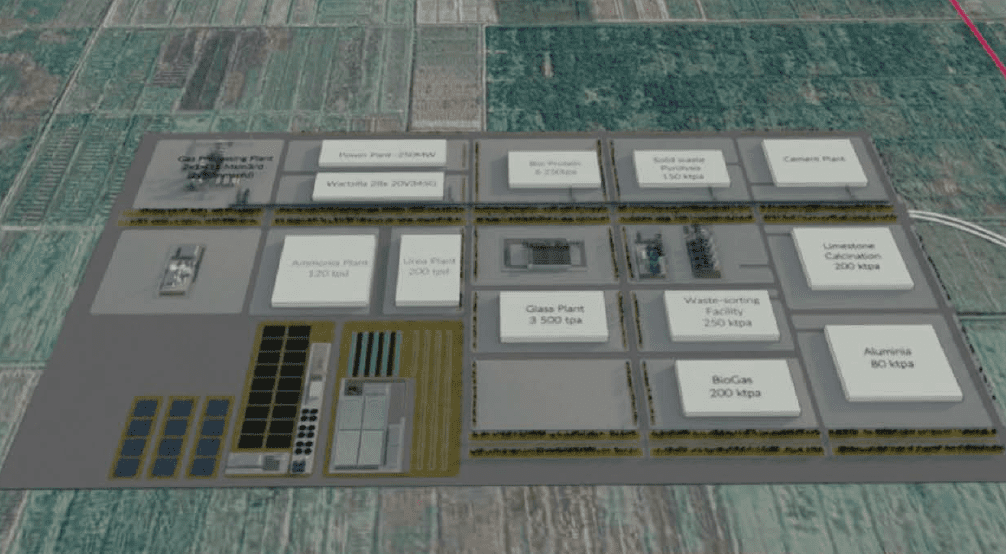The Guyana government’s highly anticipated US$900M gas project is expected to pave the way for a massive industrial park to be housed at Wales. According to Vice President, Dr. Bharrat Jagdeo, the Wales development will have similar characteristics to Trinidad and Tobago’s revered multi-purpose Point Lisas Industrial Estate which hosts numerous ammonia and methanol plants. The only difference Dr. Jagdeo said is that Guyana’s will be “a little bit more eco-friendly.”
During his latest press briefing on the project, Jagdeo said the layout for the Wales industrial park is intended to ensure that the operations are in keeping with international best practices and environmental standards.
Expounding on this front during the briefing held last week at the Arthur Chung Convention Centre was the government’s Petroleum Consultant on the project, Simon Shaw. The consultant who worked on gas projects in Brazil, Tanzania, Kazakhstan, and Cameroon noted that the gas will flow through a 12-inch pipeline. It will have the potential to carry up to 120 million cubic feet of gas.
While deliberations are still ongoing regarding the design and configuration of the pipeline and the type of power plant to be used, one key consideration for the government has been how to best use the gas. OilNOW understands that there are a number of products being looked at. In this regard, Shaw said when the gas comes in, it will produce condensate, Natural Gas Liquids (NGLs), and methane.
The consultant said some of the methane will be used for thermal power while the residual methane can be used to produce hydrogen. He said too that this can be used to produce ammonia and urea, or it can be used to produce gas to protein which the government has noted its desire to do. Shaw said, “But what is important is that these products of gas address the needs of the agriculture sector as currently, the country imports urea here and also high protein food for cattle, sheep, etc. So, these are all the main potential usage of gas.”
The consultant added, “The other thing to remember is that you wouldn’t use the power all through the day. Therefore, when the power plant is not dispatching electricity, you’ll have excess gas. The idea is that we turn that excess gas into hydrogen and then ammonia and it can be stored and then used for agriculture. So, the idea at Wales is to have an eco-industrial park.”
Shaw disclosed too that the government is also looking at using the gas for agricultural algae farming and agricultural processing. “So, this will be an industrial shopping mall and we intend to follow the World Bank’s guidelines on the development of the eco-industrial park,” the consultant noted.
The Wales Industrial Park is expected to stretch across just a little over 10,000 acres of land while the pipeline that will feed it with 50 million cubic feet of gas per day will terminate at Crane. Vice President Jagdeo informed the media that engineers are currently studying two routes, one of which will be used to land the pipeline through Crane village.
Regarding the products to be had from the imminent gas project, Jagdeo said some would be monetized and the proceeds would be used to offset the cost of the pipeline. He said, “We would again share the benefits of the byproducts because you will have enough cooking gas, probably for double the current demand and then when that is sold and the government gets half of that, it can help offset the pipeline.”
For the future, Jagdeo said it is the government’s intention to have an installed capacity of 500 megawatts of power with the gas to shore project providing upwards of 250 megawatts. Renewables such as solar and hydro will account for the remainder. “…That is how we see the energy mix for the future,” the Vice President concluded.



